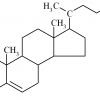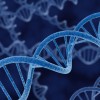Jermel Watkins
This user hasn't shared any biographical information
Posts by Jermel Watkins

Bad Cholesterol
Apr 12th
When someone mentions cholesterol many will say, how is your HDL? Cholesterol travels through the blood attached to lipoproteins. From a health prospective we try to maintain the good cholesterol (High density lipoproteins or HDL) and decrease the bad cholesterol (Low density lipoproteins or LDL). The HDL aids the body in removal of bad cholesterol in the blood whereas LDL causes build up of plaque within arteries restricting blood flow and hardening of the arteries that may result in heart disease. Control of cholesterol levels is through a number of ways such as low cholesterol diets, weight loss and drugs.
Cholesterol More >

Controlling gene expression through diet
Feb 16th
Epigenetics is the study of chemical reactions that control the on and off switch of genes at specific times and the factors influencing them. Environment is a factor that influences epigenetic change which may encompass behavior, stress or diet. The easiest of the three to make observations from is diet. When we think of food, rarely do we think of chemical modifications to DNA and restriction of gene activity. Commonly we think of foods coming in and being broken down into nutrients to be utilized in metabolic pathways to make components the body can use. Interestingly one of the pathways More >

Traveling Genomes
Jan 3rd
Many individuals are concerned with the dietary components of foods they consume. However, scientists from Nanjing University in China have given us a different perspective as to what we eat, they have discovered fragments of genetic material known as microRNAs making their way from vegetables into the human bloodstream.” (Stanley 2011)
MicroRNAs are found abundantly in humans and regulate gene activity through repression mechanisms. But to find microRNAs from plants still thriving post digestion was quite surprising. Even more shocking it was identified that fragments of these plant genomes come with consequences. Scientists revealed one such microRNA molecule, called MIR168a—which is More >

Trying to unlock a new door…..
Nov 28th
How is drug development moving along? Well, this is a very good question for we are still plagued by some elusive diseases, cancer for example. There have been many drugs developed targeting proteins involved in disease states some of which have proven to be quite effective. However today the steam engine for identifying drug targets to proteins involved in disease is becoming ever more difficult. Apparently over the past decade or so, the number of new drugs targeted toward disease has declined. This is primarily due to the fact that developing new medicine has become more difficult to do. It More >

The Medical Sleuth
Oct 31st
When we think of a detective the first thing that comes to mind is an investigator, either a member of a police agency or a private entity. However there are unique detectives within the multifaceted arena of medicine. All though we might already think of most doctors as detectives there are special doctors, units, working at the National Institute of Health’s (NIH) undiagnosed disease program. Doctors such as William A. Gahl at the NIH are disease detectives that try to elucidate the causes and genetic basis involved in the hundreds of unsolved and mysterious diseases that arise each year. Dr. Gahl More >

Will insulin come to the rescue of AD patients?
Sep 27th
Alzheimer disease (AD) is a neurodegenerative disease of the brain that is divided into early- and late-onset groups. AD is characterized by the build up of amyloid plaques, neurofibrillary tangles and the loss of connections between neurons. It is the most common type of dementia especially in the elderly. The exact causes of AD are elusive at the moment but are most likely the result of genetics and other factors. Scientist have been working hard to identify individual and or groups of genes responsible for the disease. Although the scientific community has identified may genes involved in early and late More >

Olive Oil and Nutrigenomics
Sep 28th
The effect of foods on gene expression is a fairly new area of science termed nutrigenomics. Many people are highly interested in how they may protect or prevent disease or conditions by applying diets appropriate to ones genetic make-up. Although early in its stages nutrigenomics has identified some very interesting findings. One interesting find was a clinical trial linking olive oils to the anti-inflammatory response
Extra virgin olive oil has been shown to reduce the expression of 98 genes involved in the inflammatory response by researchers from the University of Cordoba (Camargo A et al. 2010). Polyphenols are the primary beneficial More >

Could taking a nutritional supplement keep you young?
Jul 14th
It might be more real than not. Scientists working at the biotech giant Geron Corporation have isolated a molecule, TA-65, which has the ability to increase telomerase activity (It is important to note that his find has not been evaluated in published peer reviewed studies as of yet). This is an exciting breakthrough for telomerase is an enzyme that adds DNA sequence repeats to the 3′ end of DNA strands in the telomere regions, which are found at the ends of eukaryotic chromosomes. The telomeres contain condensed DNA material, giving stability to the chromosomes. These telomere DNA sequences shorten with More >

Getting an edge on breast cancer
Feb 3rd
Cancer is a life threatening disease characterized by uncontrolled growth of cells coupled with malignant behavior. The causes leading to cancer are believed to be genetic, environmental, or a combination of the two. Chemotherapy is one of a number of treatments for cancer. It utilizes a regiment of chemicals toimpair cell division and/or induce programmed cell death.
Research carried out by Dr Yang Li and colleagues at Harvard Medical School, the Technical University of Denmark, and the Université Libre de Bruxelles, have highlighted two genes – LAPTM4B and YWHAZ – that may inhibit the response of anthracycline-based adjuvant chemotherapy for breast More >

